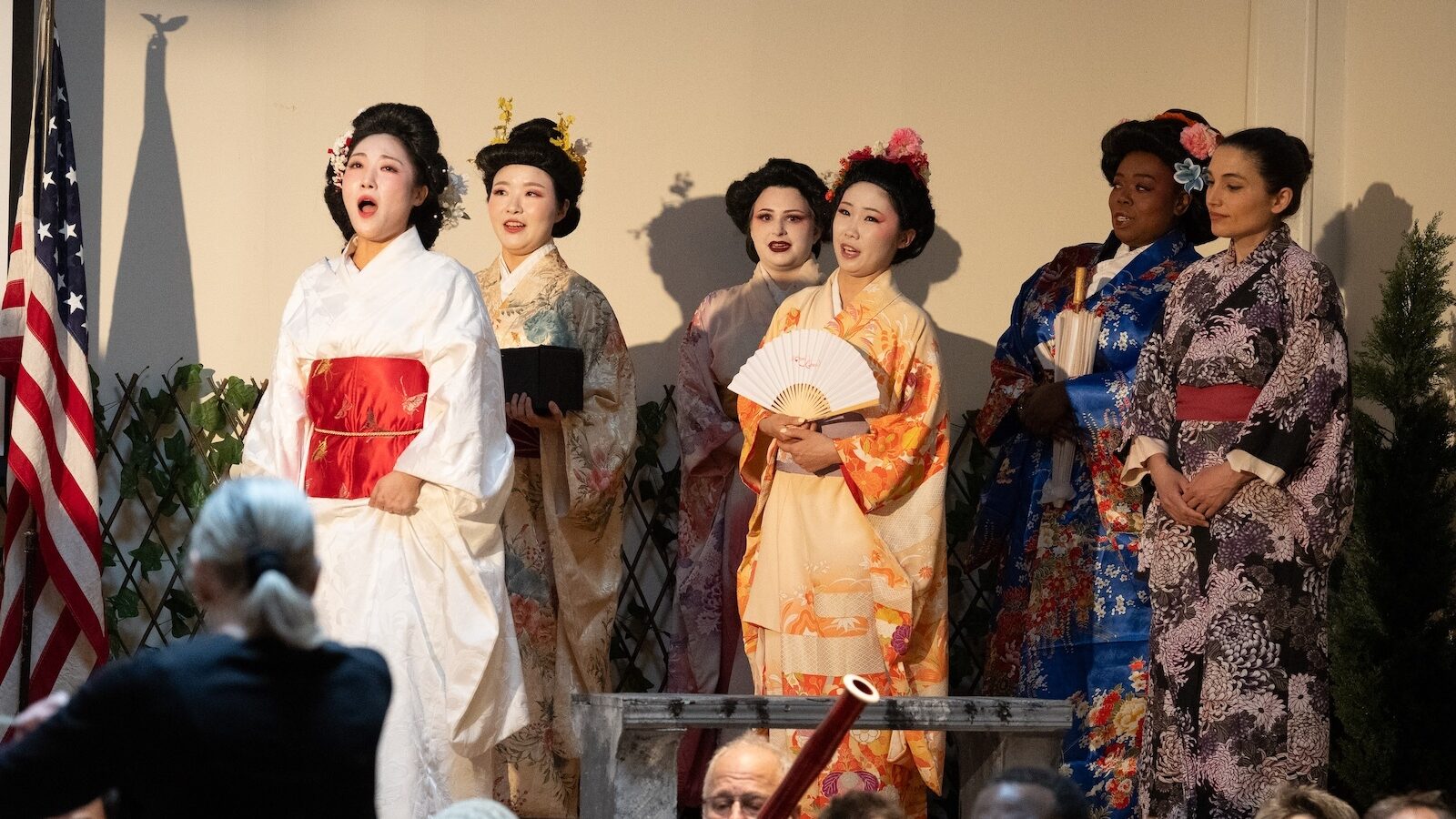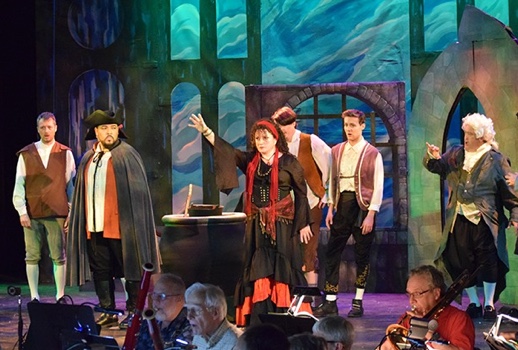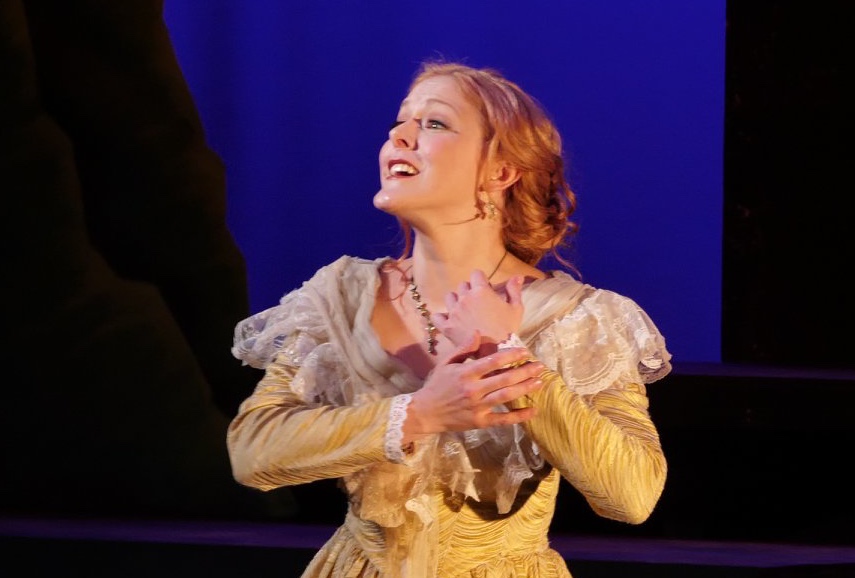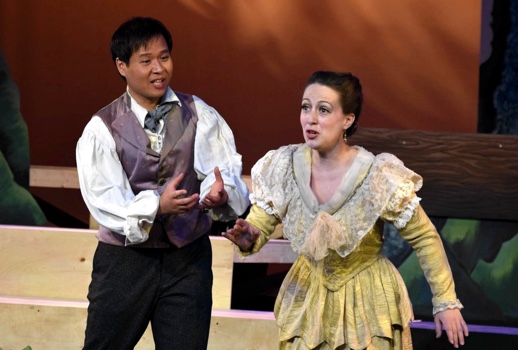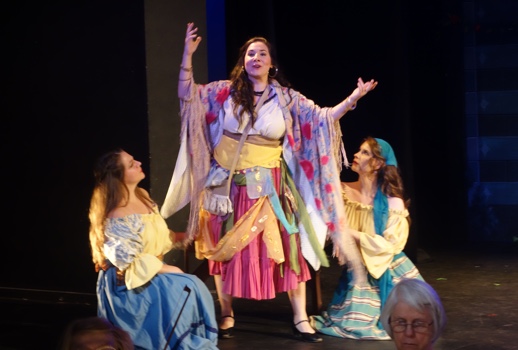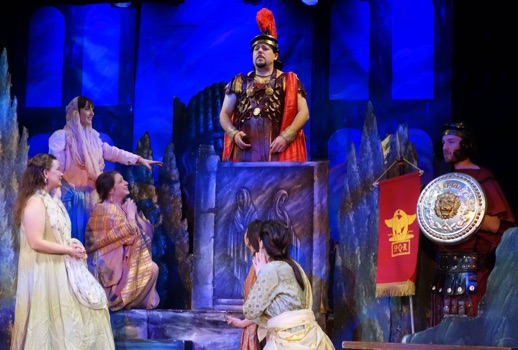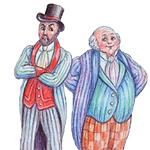
A parade of young singers delight in an intimate Madama Butterfly at Amore Opera
Traditional Christianity has always used the threat of dying unabsolved and going to Hell as a tool to get us not only to accept Jesus but also obey the dictates of the Church. Last week in New York, two classical works touched on the theme of repentance and absolution.
Amore Opera, an old-fashioned, adventurous little company that performs ambitious and sometimes delectably obscure but worthy repertory at the Riverside Theatre, is now (through Sunday) presenting Un ballo in maschera.
A return to Amore Opera’s production of Meyerbeer’s Dinorah to hear the second cast underlined two conclusions.
Amore Opera, one of New York’s smaller opera companies, is presenting the first local run of Dinorah, ou le Pardon de Ploërmel since before the war.
In the same season that Manhattan School of Music revived The Gypsy Baron, Riverside Theater around the corner is the site of Amore Opera’s “Season of Gypsy Operas.”
Just when you thought it was safe to return to Rossini and Verdi—blam!
An impresario with a hit on his hands—Emanuel Schikaneder, for instance, after the initial run of Die Zauberflöte—will crave nothing so much as an opportunity to hit the same bell.
At the age of thirty, Donizetti was already the experienced composer of about eighteen operas, both serious and farcical, but as Olivo e Pasquale (currently undergoing its American premiere run at Amore Opera) makes clear, the comic works were no slight matter.
Tell us: What was the best of 2025?
Parterre Box concludes the thrilling first year of Talk of the Town by inviting your lightning rod opinions on several more categories of operatic argumentation.
Parterre Box concludes the thrilling first year of Talk of the Town by inviting your lightning rod opinions on several more categories of operatic argumentation.
Get our free newsletter
Opera's top reads delivered to your email weekly…ish.
Join over 100k readers.
The best opera magazine on the web.
Reviews, breaking news, critical essays, and brainrot commentary on opera from those demented enough to love it.
Essentials
Copyright © 2026 Parterre Box.
All rights reserved.
Registration or use of this site constitutes acceptance of our Terms & Conditions and our Privacy Policy.

